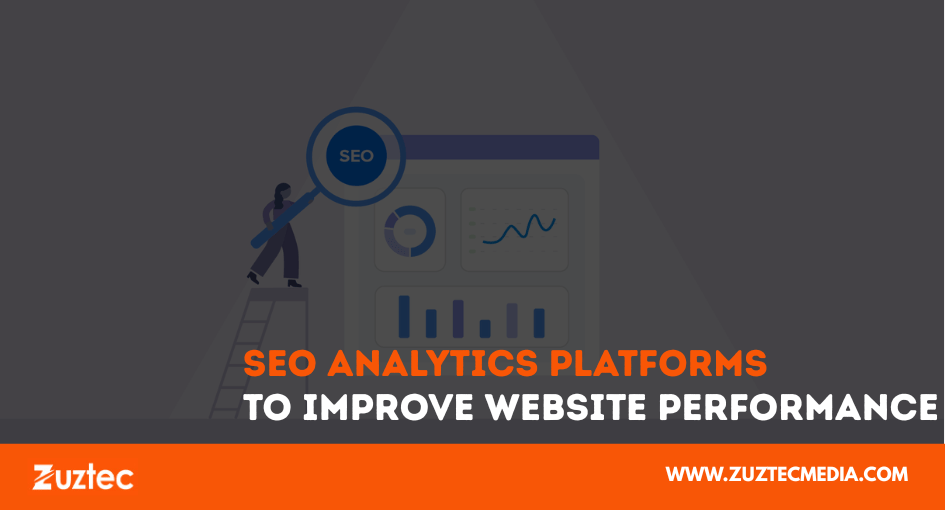
SEO Analytics Platforms To Improve Website Performance
Understanding how your website performs in search engines is critical for digital success. Whether you’re running a business, managing a blog, or working for a marketing agency, analyzing SEO data is key to optimizing your strategy. With so many moving parts involved in SEO, such as keywords, traffic sources, backlinks, and user behavior, it can be overwhelming to make sense of it all without the right tools. That’s where SEO analytics platforms become essential.
These platforms offer insights into how well your site is doing in search rankings, how visitors are finding your content, and which pages are driving the most engagement. They also help identify technical issues like broken links, crawl errors, or slow-loading pages that could be harming your rankings. More importantly, they allow you to track progress over time, evaluate the impact of SEO changes, and fine-tune your campaigns based on accurate data.
Some tools specialize in keyword tracking, while others provide comprehensive reports across multiple SEO metrics. Many platforms integrate with other digital tools, offering a more holistic view of your online presence. Whether you’re aiming to improve local SEO, grow a national brand, or boost your e-commerce store’s visibility, an effective analytics tool can make all the difference.
In this article, we’ll explore what analytics platforms are, why they matter, and which features to look for. We’ll also share practical tips for using these tools to improve your SEO results and make smarter decisions that lead to sustainable growth.
Benefits Of Using SEO Analytics Platforms For Strategy
These platforms give marketers a clear picture of what’s working and what’s not. With detailed data on rankings, traffic, user behavior, and site health, these platforms empower users to make data-driven decisions. One of the biggest benefits is being able to track keyword performance. You can see which terms are bringing in traffic and which ones need optimization or replacement.
Another major advantage is visibility into backlinks. These platforms help identify who is linking to your site, whether those links are valuable, and where new opportunities might exist. Since backlinks are a key ranking factor, this insight is essential for improving domain authority.
Technical audits are another powerful feature. Most platforms will scan your website and flag errors like missing meta tags, duplicate content, or page speed issues. Plus, many tools provide suggestions to resolve issues quickly, even if you’re not a technical expert.
Most importantly, these platforms help set and measure SEO goals. By tracking keyword rankings, page views, click-through rates, and bounce rates over time, you can evaluate how your strategies are performing. This allows for continuous improvement rather than guessing what might work.
Key Features To Look For In SEO Analytics Tools
The best SEO analytics platforms offer a combination of reporting, auditing, and optimization features. A strong keyword tracking system is essential. This feature lets you monitor how your keywords rank on search engines across different locations and devices. Some tools even alert you when rankings change significantly.
Competitor analysis is another valuable feature. It allows you to see what your rivals are doing—what keywords they target, how many backlinks they have, and which content performs best for them. This information can shape your own strategy and highlight areas where you can outperform them.
They analyze headings, meta descriptions, keyword usage, and content quality to ensure your pages align with search engine guidelines. Many platforms also offer content suggestions based on what’s ranking well for specific keywords.
Integration with other tools, like Google Analytics or Google Search Console, adds depth to your insights. This allows for a more complete picture of traffic sources, user behavior, and conversion performance. Some advanced platforms include AI-powered recommendations to help streamline decisions and uncover hidden opportunities.
How To Use Analytics To Improve SEO Results Over Time
Having an analytics platform is only useful if you apply its insights effectively. Start by setting specific SEO goals, such as improving keyword rankings, increasing organic traffic, or reducing bounce rates. Then use the platform to establish your baseline metrics.
Review reports regularly to spot changes or patterns. If traffic drops or rankings fall, check for issues like broken links or algorithm updates. On the flip side, if a page suddenly performs well, analyze why and apply those tactics to other content.
Adjust your content strategy based on what users are searching for and how they interact with your pages. Analytics tools can reveal which content types perform best, whether long-form guides or shorter blog posts. Use this data to shape future topics and optimize existing pages.
Monitor your backlinks monthly to ensure quality and relevance. Disavow spammy links that could hurt your rankings and reach out to websites that could provide new high-authority links.
Most importantly, use the platform to support long-term planning. SEO is not about short wins—it’s about sustainable growth. The data provided by these tools helps you build an adaptive, forward-thinking strategy that evolves with market trends and search engine changes.
In the conclusion phase, it becomes evident that leveraging seo analytics platforms is not optional for serious digital marketers. These tools transform complex data into actionable strategies that drive real results, making them a vital asset in every SEO campaign.

